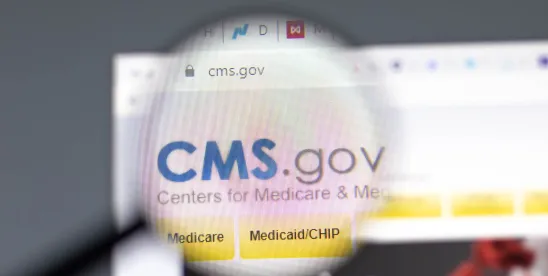On September 26, 2024, the Centers for Medicare & Medicaid Services’ (CMS) Durable Medical Equipment (DME) Medicare Administrative Contractors (DME MACs), Noridian Healthcare Solutions, LLC and CGS Administrators, LLC, revised their Policy Article A55426 – Standard Documentation Requirements for All Claims Submitted to DME MACs (the “Policy Article”) regarding documentation that constitutes a patient’s “medical record” for purposes of demonstrating medical necessity and justifying payment for covered DME items.
DME Suppliers are among the most heavily audited provider types and are required to maintain medical records and other documentation that demonstrate medical necessity and compliance with all CMS coverage requirements. Until now, any information contained in a patient’s prescription documentation was not considered part of the patient’s medical record. The prescription documentation was ignored for purposes of demonstrating compliance with CMS’s coverage requirements even though prescription documentation is completed and signed by the prescriber.
How Did the Rules Change?
Retroactively effective to January 1, 2024, the DME MACs deleted the following sentence from the Policy Article:
“A prescription is not considered to be part of the medical record, except in the case of documenting medical necessity for replacement prosthetic limbs.”
Prescription documentation often succinctly articulates a patient’s clinical conditions and diagnoses and documents the items of DME prescribed with relevant settings/requirements for use. These categories of information (clinical conditions and diagnoses) are almost always primary elements of CMS coverage criteria for DME items.
Previously, DME suppliers were required to ignore all the information on the prescription when determining whether the patient’s medical records qualified the patient for coverage. This often resulted in DME suppliers contacting prescribers to request additional, or amendments to, medical records/progress notes, which caused delays in patients’ access to care.
Why is This Important?
Based on the Policy Article revisions, DME suppliers may now rely on the information included in the prescription documentation to demonstrate compliance with CMS’s coverage criteria. Importantly, and as noted above, this change was made effective retroactive to January 1, 2024. DME suppliers currently under audit, or appealing claims with dates of service after January 1, 2024, must consider whether inclusion of prescription documentation now allows a patient’s medical record to demonstrate compliance with coverage requirements where it previously did not. Additionally, DME suppliers may consider updating internal policies and procedures regarding prospective review of medical records for compliance with CMS’s coverage criteria to include information in the prescription documentation. Lastly, DME suppliers should remember the Policy Article still contains language that records generated by the DME supplier — as a supplier with a financial interest in the claim outcome — are not considered sufficient to demonstrate an item is reasonable or necessary.






 />i
/>i
